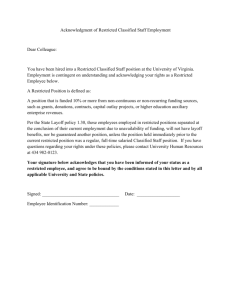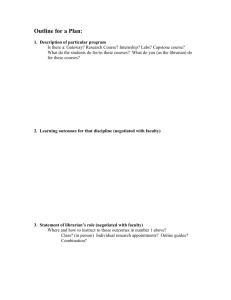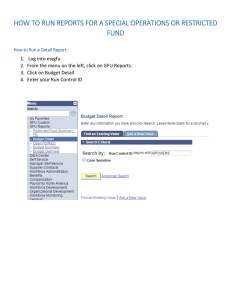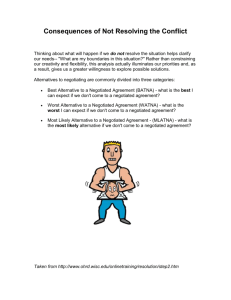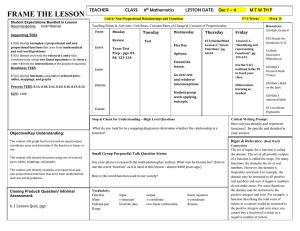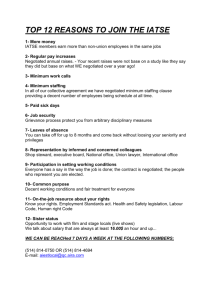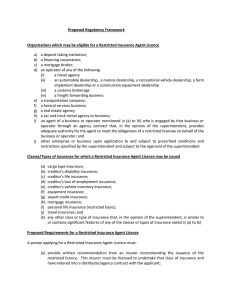– discussion prompts Open, negotiated and restricted access to data 1.0
advertisement
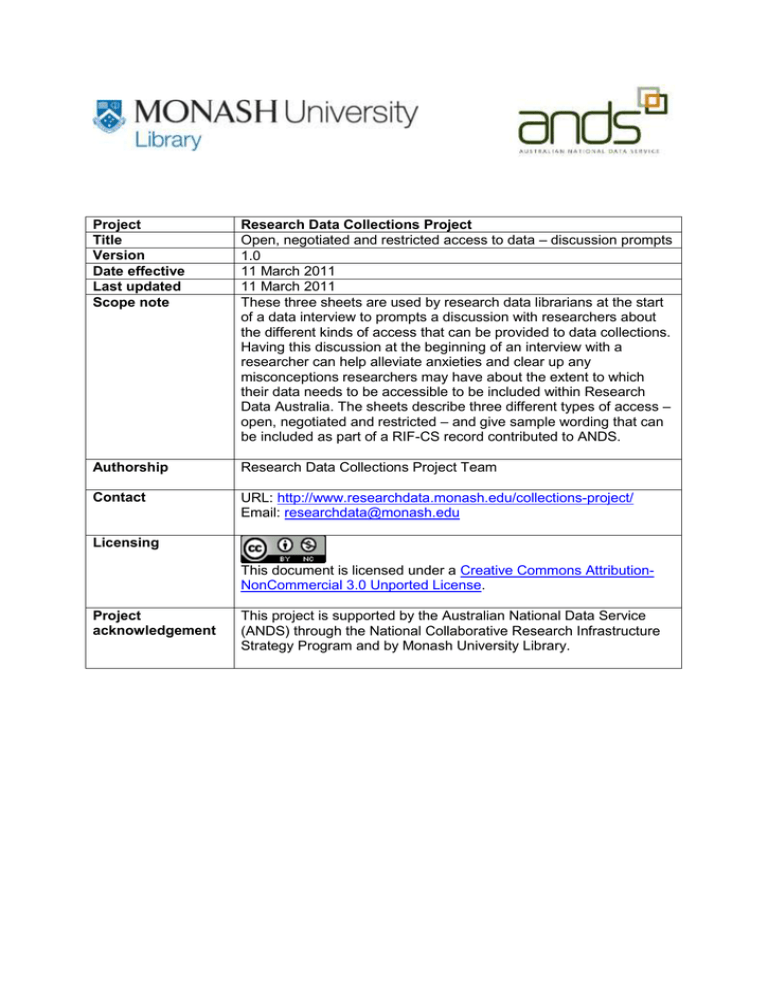
Project Title Version Date effective Last updated Scope note Research Data Collections Project Open, negotiated and restricted access to data – discussion prompts 1.0 11 March 2011 11 March 2011 These three sheets are used by research data librarians at the start of a data interview to prompts a discussion with researchers about the different kinds of access that can be provided to data collections. Having this discussion at the beginning of an interview with a researcher can help alleviate anxieties and clear up any misconceptions researchers may have about the extent to which their data needs to be accessible to be included within Research Data Australia. The sheets describe three different types of access – open, negotiated and restricted – and give sample wording that can be included as part of a RIF-CS record contributed to ANDS. Authorship Research Data Collections Project Team Contact URL: http://www.researchdata.monash.edu/collections-project/ Email: researchdata@monash.edu Licensing This document is licensed under a Creative Commons AttributionNonCommercial 3.0 Unported License. Project acknowledgement This project is supported by the Australian National Data Service (ANDS) through the National Collaborative Research Infrastructure Strategy Program and by Monash University Library. Open access The data is available for download online through a data archive, repository or permanent website. You are o Reserving all rights – i.e. re-use is only what is permitted under copyright legislation or o Allowing greater re-use but reserving some rights (e.g. right to be attributed as the collector / owner of the data) by associating the data collection with a licence or another type of re-use agreement or o Not reserving any rights – you are placing the data in the public domain. Draft statement/s for open access – to be discussed during interviews Copyright [add name and date]. [Name of data collection] by [name of researcher] is licensed under a [name of licence and link to licence]. e.g. Copyright, Harold Love, 2006. e.g. Licensed under a Creative Commons Attribution-NonCommercial 3.0 Unported License. e.g. GNU GENERAL PUBLIC LICENSE Version 3, 29 June 2007. Negotiated access Your data collection can be accessed by others if certain conditions are met. You may want to impose conditions yourself (as the investigator), e.g. you may want to find out more about the intended use of the data or have the opportunity to explain certain aspects of the collection to any potential users. Other groups associated with the data collection (e.g. funding agency, ethics committee, project board, research participants) might also have terms and conditions that need to be met. People wanting to access / re-use the data would contact you directly as the first step in the process. This process is common already, e.g. you may already receive requests for data through direct contact by email. Having your data collection record on Research Data Australia may increase the number of requests that you get. Draft statement/s for negotiated access – to be discussed during interviews Contact the owner / manager of this data collection directly to discuss terms and conditions of access. Requests for access must be approved by [fill in details]. You may need to [fill in details] e.g. The owner / manager of this data collection may provide access to this data collection by negotiation. You may be required to indicate your intended use of the data, to meet any costs associated with providing you with the data, and to fulfil other terms and conditions as determined by the data owner / manager. Restricted access Your data collection can only be accessed by certain nominated people, e.g. project team. Terms and conditions (e.g. ethics) are such that other researchers are unable to access the data or the work required to access the data (e.g. renegotiating consents with individual participants) would be too expensive and/or time-consuming. If the data is closed access now, but may be available later (i.e. there is an embargo) this can be noted. Draft statement/s for negotiated access – to be discussed during interviews Access to the data is restricted to [fill in details of who can access the data e.g. “project investigators”]. Access to the data is restricted to [fill in details of who can access the data e.g. “project investigators”], until [add details of embargo]. e.g. Access to the data is restricted to the project investigators. e.g. Access to the data is restricted to the project investigators, until six months following the completion of the project. e.g. Access to the data is restricted to staff and students of the Department of [....].
